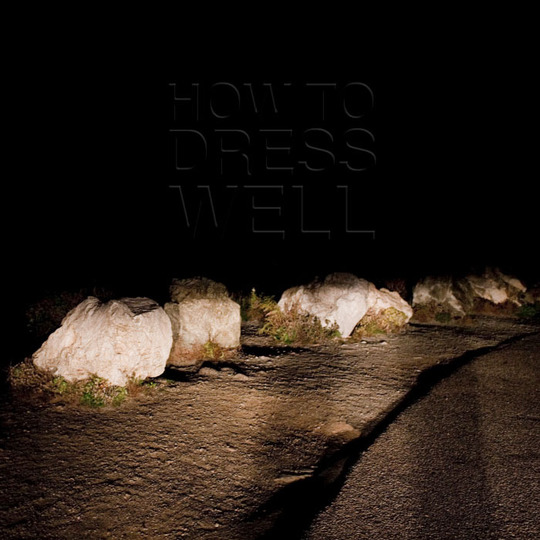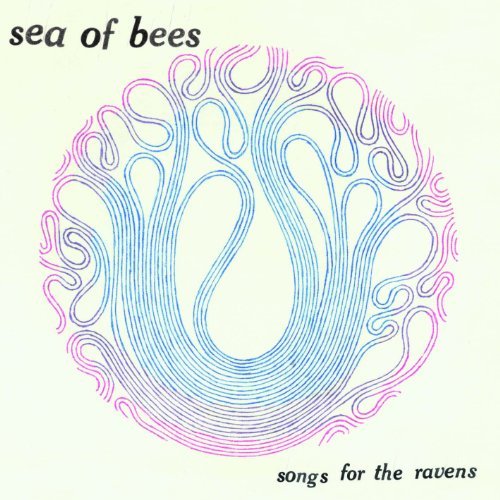Movements, be they physical, cultural or imagined, all end up running into themselves. Crashing into their own reflections or seeping downward, inward and sometimes sideways. Often times they just cross-fade, but in doing so there's a brief jarring moment of a muddled idea. Disparate concepts come full-circle or diverge down parallel paths. Everything is subsumed by everything else, financially or in its neutered iconography. The punk rock Antichrist becomes the establishment’s front-page jester, becomes the hipster pose and that pose is reborn in a butter commercial, saying nothing, forging the way for something rebellious to be born all over again from its very antithesis. Exciting burning-edge innovations ebb toward the same boring, bureaucracy-laden conclusion as everything else. Racism becomes pen-pusher policies for positive discrimination. Burnt effigies of heroes. The market stall Che Guevara t-shirt. Sometimes, meaninglessness is heralded as genius in 100,000 word theses. Some small town heroes become alcoholic losers. Complex problems are solved by comprehending complex patterns, which become simple rules taught in school. Works of art by the starved to death, posthumously find themselves valued in the millions. Jay-Z basslines blast court-side at the White House. Babies bounce around in Black Flag and Sex Pistols bibs. Black and white, rich or poor; mods, rockers and b-boys, no matter how polarized, everything becomes one entangled mess, ostracized or on a suburban coffee table, sooner or later...
Which brings me clatteringly to a standstill to introduce Berlin and Brooklyn dwelling philosophy student Tom Krell, aka How To Dress Well and his debut album of 'gurgling sounds'. Gurgling in both the newborn and everything swirling around the drain sort of way. Gurgling in that way half-listening to something leaves you perplexed, so you decide to mock it rather than engage.
Love Remains is an album at odds with itself. On the one hand, it’s a gentle voyage into a land of elegant dissonance where barely there beats are swept away by warm washes of sound installation-ish noise. On the other, it’s a conflicted record that asks more questions than it answers. Krell ponders whether the only place indie-rock has left to go is to move inward or regress backward to the depths of ambience. Elongated pauses and weak waves of hiss seem like questioning pauses about the meaning of chillwaves. Guitars? Should guitars once again embrace a world of soul or climb to the heights way beyond The Neptunes' or Kayne's private jets? Yet, in an age of unlimited choice, why pick one answer? What if both and/or all the above answers are right? In fact, it’s as if he’s creating a concept album of convalescence, which explores scenarios where all the divergent paths of rhythm and blues intersect. The result is much more subtle than The Grey Album. Krell's decision to make this-sort-of-thing is either highly theoretical or - far more likely - the let-it-all-out work of a sharp mind in which you’d imagine somewhere in his unconscious, scribbled notes flow down TLC's waterfall and are reworked into sentences like 'chain-gang theories hump electronica.' He may ask himself: is this what part-alien tribal music would sound like? Sure, terms like 'post-modernism' could be slung around in this review, especially as Krell's use of modern technology gazes with one eye into the future, whilst the other sleepishly looks back and places things at odds with themselves. At times it’s almost as if Love Remains is folding the future into past, with a production that re-creates the dirtiness of those early wax cylinder recordings that underpin the foundations of everything we know about modern pop, as well as everything on its farthest fringes. It asks, what if the embryo to all of it sounded more like this?
Don’t let a mention of "ambient" lead you astray: this is not accessible or ‘easy listening’, far from it. At first, Love Remains makes for a harsh, uninviting record with all the gloss of R&B replaced by the sand-papery texture of a cat’s tongue. Imagining Jodeci’s second album with the same musty are-my-speakers-broken haze as Pinkerton and Person Pitch, half-helps to reveal what’s behind this dense production fug. Because what what lies beneath is breathtaking, with hooks and a Timberlakian/wacko-Jacko disco-falsetto that wouldn’t be out of place on the campest of modern pop records.
It's an utterly heart-wrenching album that is as dense as it is beautifully simple. Conceptually incongruous, sure, but as an experience it whirls either your hips or the contents of your head to the left-left and right-right. Over the past few months, Love Remains has become an utter obsession, partly because there’s an addictive something - sort of a remnant ear-worm energy that hauls you back - in the holographic harmonies. Repeated listens also reveal an otherworldly songcraft and a sexiness burrowed beneath the smoky wisps of reverb. Not overtly sexual, by any means (it isn’t overtly anything) but tracks like ‘Can’t See My Own Face’ and ‘Decisions’ have an alien-R&B sexual feeling, a sort of lo-fi Prince dusty vinyl vibe. There’s this eeriness too that could draw erroneous comparisons to hypnagogic-popsters James Blake, Jamie Woon, et al but this record has so much more charm and melody. In fact, I could either write some lofty thesis on this being post-R&B, expanding on the messy ‘pop will eat itself’ cultural theory of my opening paragraph or admit there just aren’t really the words to do this justice beyond watching someone’s hips shift r-right-right and l-left-left until the mp3 stops spinning...
-
9Sean Adams's Score






















